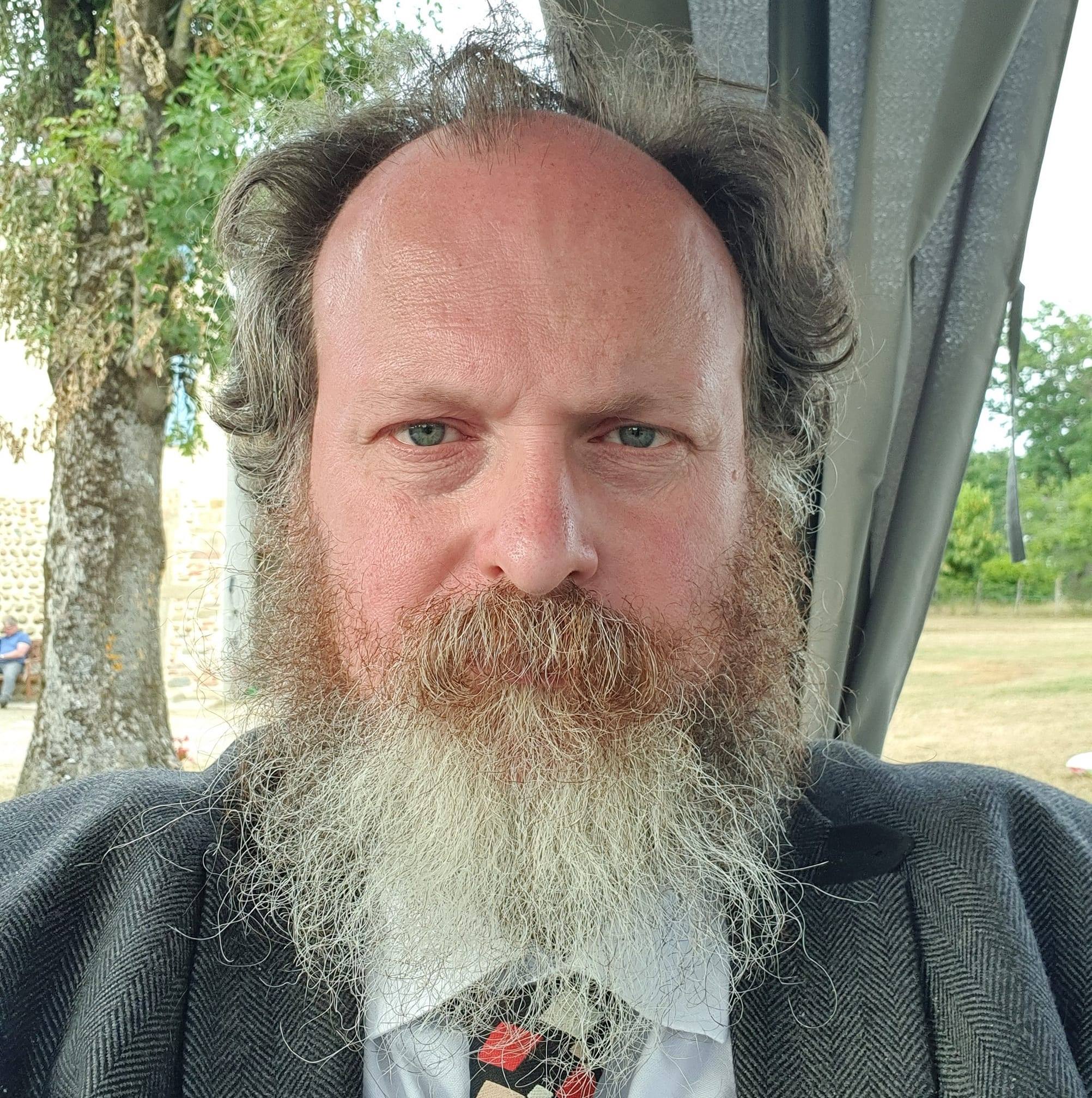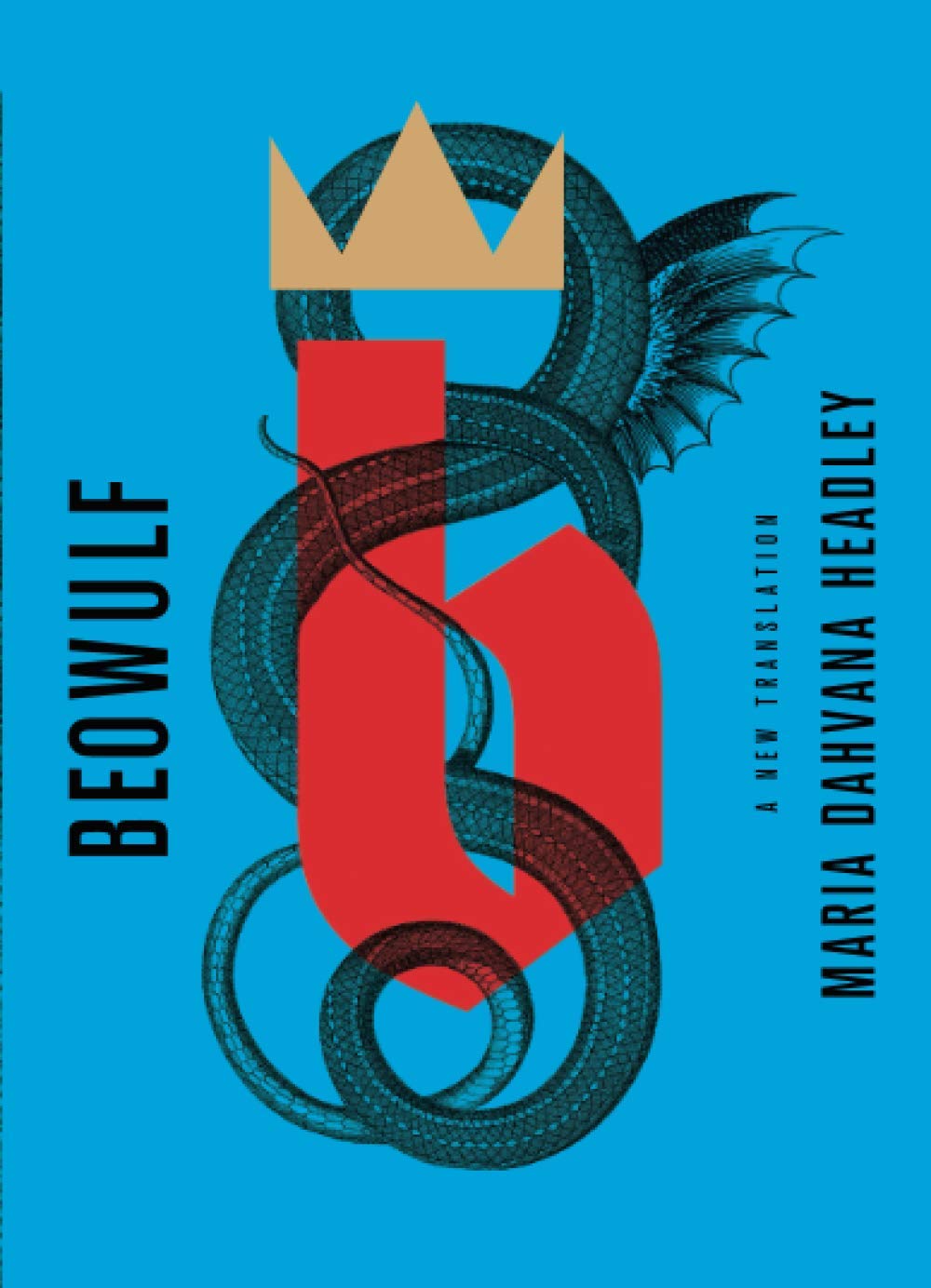Traduttore, traditore. Het is een bijzonder moeilijk vak, vertalen. Elke vertaling is noodgedwongen ook een hertaling, en geen mens wil een letterlijke woord-voor-woord-vertaling, tenzij om academische redenen misschien. Het is moeilijk om een pakweg Deens boek geschreven in 2021 te vertalen naar het Nederlands omdat we hele lappen context en verwijzingen missen — beeld u dan in hoe moeilijk het is om iets te vertalen dat meer dan duizend jaar geleden geschreven is, in een écht totaal andere wereld.
Beowulf is zoiets, en en Beowulf heeft daarenboven nog stapels andere dingen die het notoir moeilijk te vertalen maken.
Beowulf is natuurlijk enorm veel vertaald geweest. Heel veel vertalingen lezen enorm oubollig, en dat is vaak helemaal bewust. Zoals Tolkien in 1940 schreef:
If you wish to translate, not re-write, Beowulf your language must be literary and traditional: not because it is now a long while since the poem was made, or because it speaks of things that have since become ancient; but because the diction of Beowulf was poetical, archaic, artificial (if you will), in the day the poem was made.
Dus ja, er is iets te zeggen voor een archeïserende versie. Maar van de verschillende versies die ik geheel of gedeeltelijk las, vond ik die van Seamus Heaney’s tot nog toe de beste, met een (voor mij) fantastische balans tussen episch en intiem.
Ter illustratie, drie verschillende versies van hoe Beowulf zichzelf voorstelt als hij in Heorot toekomt. Francis Barton Grummere’s versie uit 1910 wordt tegenwoordig nog altijd als uitstekend beschouwd:
Thou Hrothgar, hail! Hygelac’s I,
kinsman and follower. Fame a plenty
have I gained in youth! These Grendel-deeds
I heard in my home-land heralded clear.
Seafarers say how stands this hall,
of buildings best, for your band of thanes
empty and idle, when evening sun
in the harbor of heaven is hidden away.
So my vassals advised me well, —
brave and wise, the best of men, —
O sovran Hrothgar, to seek thee here,
for my nerve and my might they knew full well.
Themselves had seen me from slaughter come
blood-flecked from foes, where five I bound,
and that wild brood worsted. I’ the waves I slew
nicors by night, in need and peril
avenging the Weders, whose woe they sought, —
crushing the grim ones. Grendel now,
monster cruel, be mine to quell
in single battle!
Schoon, “in the harbor of heaven is hidden away”, “blood-flecked from foes, where five I bound”. Vergelijk die “episch gedicht”-versie met Heaney’s bijna parlando-versie:
“Greetings to Hrothgar. I am Hygelac’s kinsman,
one of his hall-troop. When I was younger,
I had great triumphs. Then news of Grendel,
hard to ignore, reached me at home:
sailors brought stories of the plight you suffer
in this legendary hall, how it lies deserted,
empty and useless once the evening light
hides itself under heaven’s dome.
So every elder and experienced councilman
among my people supported my resolve
to come here to you, King Hrothgar,
because all knew of my awesome strength.
They had seen me boltered in the blood of enemies
when I battled and bound five beasts,
raided a troll-nest and in the night-sea
slaughtered sea-brutes. I have suffered extremes
and avenged the Geats (their enemies brought it
upon themselves, I devastated them).
Now I mean to be a match for Grendel,
settle the outcome in single combat.
Opnieuw die heerlijke alliteraties wel (“boltered in the blood of enemies // when I battled and bound five beasts”), maar helemaal anders. Wel, Headley heeft een nog totaal andere insteek:
In contrast to the methods of some previous translators, I let the poem’s story lead me to its style. The lines in this translation were structured for speaking, and for speaking in contemporary rhythms. The poets I’m most interested in are those who use language as instrument, inventing words and creating forms as necessary, in the service of voice. I come from the land of cowboy poets, and while theirs is not the style I used for this translation, I did spend a lot of time imagining the narrator as an old-timer at the end of the bar, periodically pounding his glass and demanding another. I saw it with my own eyes.
De sleutel van deze vertaling zit in dat laatste, een oude mens in een café die het verhaal vertelt, en “serieus gast ik heb het zélf gezien”. Dit is hoe die oude man vertelt dat Beowulf zich voorstelde:
My respects to Hrothgar. I’m a kinsman
of Hygelac, and over the years, no boasts—  
I’ve been known for my promise and prowess.
I heard tell of Grendel from sailors—seriously,
the whole world knows the stories, swapped and sworn, 
of Heorot Hall’s early curfew, how every night 
you surrender to silence when the sun sprints
out of Heaven, leaving the celestial dome dark.
Every elder knew I was the man for you, and blessed
my quest, King Hrothgar, because where I’m from?
I’m the strongest and the boldest, and the bravest and the best.
Yes: I mean—I may have bathed in the blood of beasts,  
netted five foul ogres at once, smashed my way into a troll den
and come out swinging, gone skinny-dipping in a sleeping sea
and made sashimi of some sea monsters.
Anyone who fucks with the Geats? Bro, they have to fuck with me.
They’re asking for it, and I deal them death.  
Now, I want to test my mettle on Grendel, best him,
a match from man into meat. Just us two,
hand to hand. Sweet.
We blijven zwemmen in een zee van alliteraties (“the boldest, and the bravest and the best. // Yes: I mean—I may have bathed in the blood of beasts”, “swinging, gone skinny-dipping in a sleeping sea and made sashimi of some sea monsters.”) — maar de tekst leeft. Ik ben er helemaal voor.
En ja, Headley geeft toe dat haar vertaling zeer snel verouderd zal zijn, maar op dit moment leest ze bijzonder aangenaam. We nemen er dan maar bij dat het binnen een paar jaar even zielig zal klinken alsof we een Beowulf uit 1971 vol “groovy” en “grok” en “far out” en “Keep on truckin’” zouden lezen.
Ik heb er geen probleem mee dat op “Bro, do you happen to be the Beowulf who challenged Breca in the open ocean, insisting you should swim in shark-seas for no reason but to prove your petty prowess? […]” het antwoord komt “Well actually, buddy, sit down, you’re drunk. Unferth, you’ve run your mouth about Breca, me, and our sea-swagger, but let me drop some truth into your tangent. I’ve been better on the water, deeper in the drink, and stronger in the swim, than any man alive.”
Ik heb ook geen enkel probleem met de (toegegeven, soms zeer nadrukkelijke) feminiserende lezing. Waarom niet, dat Grendel’s moeder een heldin zou zijn? En waarom niet, duidelijk maken dat vrouwen vaak quantité négligeable waren.
Het enige dat mij stoort, is als het soms in het “ontmoeten is ook een stukje (ont)-moeten“-territorium verzeilt:
The Almighty made Earth for us, they sang.
Sun and moon for our (de)light,
fens full of creatures for our feasting,
meres to quench our thirst.
Neen, die “(de)light”, doe dat niet. Dat doet meteen afbraak aan het hele beeld van oude mens die dit aan de toog vertelt, en duwt iedereen er met de neus op dat we naar een geschreven tekst zitten te kijken.
Maar verder: hoera.


Reacties
2 reacties op “Beowulf – A New Translation”
Machtig, komt op de leeslijst.
[…] ik Beowulf aan het lezen was in een nieuwe vertaling, was ik benieuwd naar oudere vertalingen. Ik keek op de […]